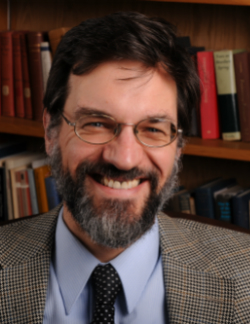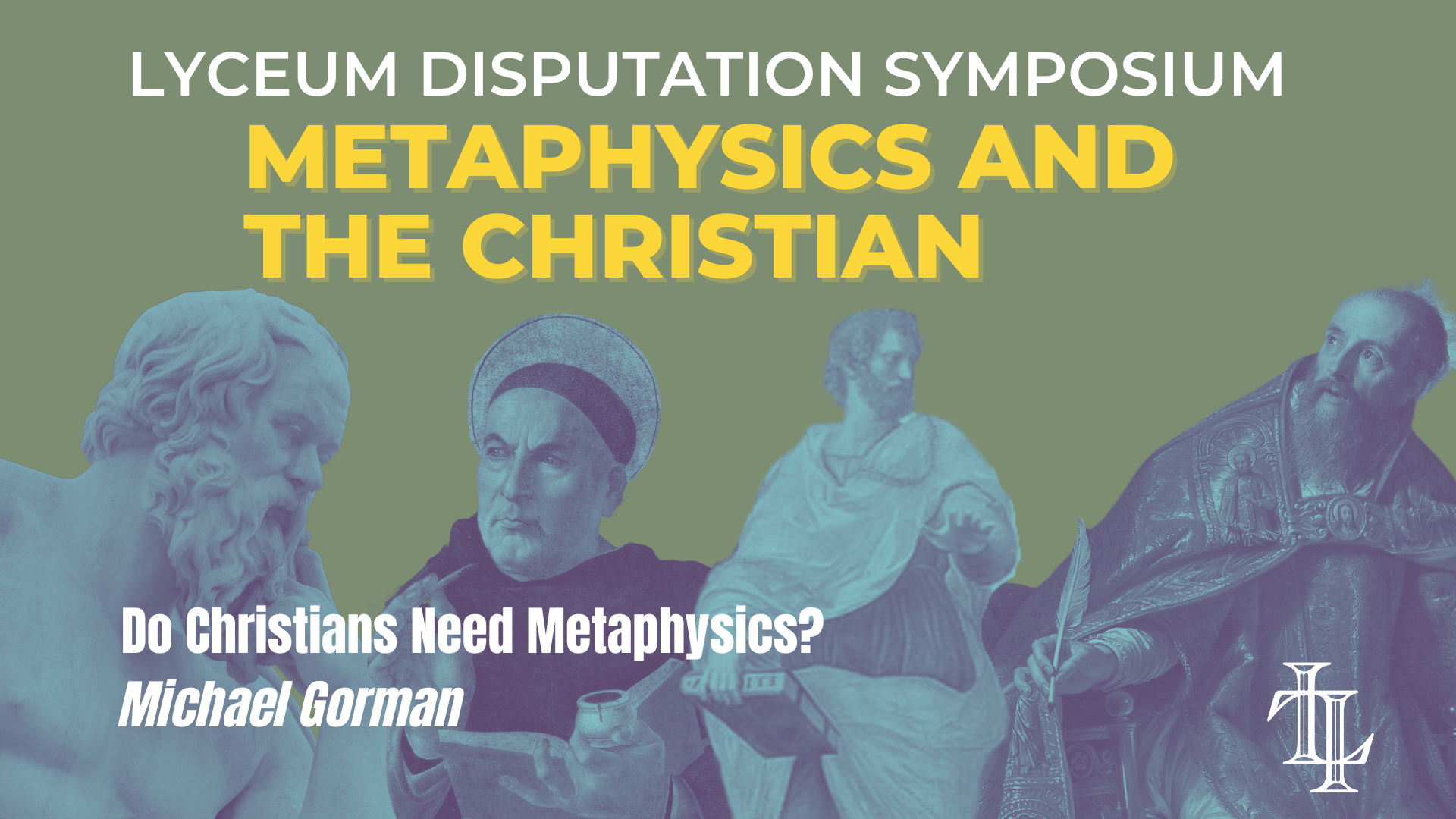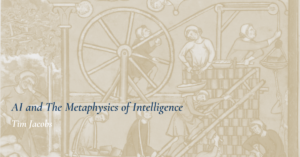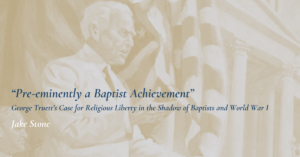Editor’s Note: This is part 2 in our Lyceum Disputation series on metaphysics and the Christian. Stay tuned for further installments which can be found here when available. As with all our work, the London Lyceum publishes a range of viewpoints to encourage thinking.
Do Christians need metaphysics? To answer this question, we need to know what metaphysics is. But since metaphysics is part of philosophy, we really need to start by getting clear on what philosophy is.
Philosophy, I propose, is the attempt to understand fundamental truths by unaided reason. “Fundamental” truths are truths that lie at or near the basis of things, truths on which other truths rest. A question about how to form the plural of “ox” is a good question but not a fundamental question; a question about what makes something a word, as opposed to a mere sound, is (comparatively speaking) a fundamental question. There’s probably no sharp line dividing questions that are fundamental enough to belong to philosophy from questions that are not, but that’s nothing to worry about. A grey zone is untroubling, as long as we still acknowledge the difference between black and white.
When it asks and answers fundamental questions, philosophy proceeds in an “unaided” fashion, i.e., without the help of supernatural revelation. That important things can be grasped in this way, at least to some extent, seems to be biblical teaching: God’s eternal power and divinity can be understood on the basis of creation (Rom 1.19-20). One can take this in a maximally strict way, so that philosophy stops its ears and tries not even to know what revelation has to say. But there’s no need to be so extreme. It’s enough to say that even if philosophy picks up some good ideas from revelation, it holds back from endorsing them until it can give them adequate support from human reason.
Of course one can be a philosopher and a person of faith at the same time. Such a person would accept certain truths on the basis of the fact that they have been revealed—especially truths that philosophical reason has no hope of establishing (1 Cor 1.18-25; 2.7-13). But to do so is not, as such, to proceed in a philosophical fashion. There’s no need to think of these as opposed; it’s just a matter of being clear about what one is and isn’t doing, and when. One can believe in the soul’s immortality on the basis of faith but also attempt to find a philosophical proof of it. Any such proof would not appeal to revelation in its premises, but the person who offers such a proof might be a believer nonetheless.
All this should be distinguished from reflection on revelation that is informed by philosophical ideas. Theologians, or good theologians, at any rate, make use of whatever conceptual resources they can, and this can mean drawing on philosophy. Inasmuch as the ultimate court of theological appeal remains revelation, the resultant theologizing will be philosophical, but without being philosophy.
So much for philosophy; what’s metaphysics? Historically, metaphysics as an organized field of study grows out of the writings that we—but not their author, Aristotle—called the Metaphysics. It is the search for wisdom or first philosophy, which turns out, on Aristotle’s analysis, to be the study of being as being. If that sounds abstract, it’s because it is. We can study what all birds have in common—that’s ornithology. We can study what all animals have in common—that’s zoology. We can study what all living things have in common—that’s biology. As we go higher and higher, from less to more general and universal, eventually we bump our heads against a highest and most universal study, the study of what all beings have in common. We study them not as birds, or as animals, or as living organisms, but simply as beings. To do this involves asking about being and other “transcendental properties,” i.e., properties that all beings have. For example, one can ask whether all beings are internally unified, or good. Closely conjoined with this, metaphysics asks about the main sub-divisions of beings, which means engaging in category theory. For example, one can ask whether the world includes only substances, i.e., individual independent wholes, like dogs, or whether it also includes, say, events, like explosions.
This is metaphysics in its oldest and most proper sense. But philosophers often use the word “metaphysics” to refer to more specific inquiries, such as “What is a nature?” and “What is a person?” or “What is change?” Perhaps not much is at stake in whether we say that such studies belong to “metaphysics” or “applied metaphysics” or whatever. Even if some of them are bit too specific to count as metaphysics in its fullest sense, they are still very universal, and on top of that, they are clearly asking about being as opposed to, say, our knowledge of being.
For the purposes of this essay, I will not be greatly concerned to police my own, or others’, uses of the word “metaphysics.” Instead, let me turn at last to our main question: Do Christians need metaphysics (or any other kind of philosophy, one might add)? I have already suggested that Christians sometimes do make use metaphysics, or at least of philosophical ideas more generally. But the question is not whether they do, but whether they need to.
Let me say right off that strictly speaking, one does not need metaphysics to be a Christian. Children can be Christians, and very few children are metaphysicians. Ultimately, however, you need metaphysics if you want to be a thoughtful Christian, and as society becomes less and less supportive of the faith, and indeed more and more opposed to it, it becomes harder and harder to be a Christian without being thoughtful about it. In the face of objections, and even simply in the face of alternatives, we must be able to give reasons for the hope that is within us (1 Pet 3.15).
But why, one might ask, must the giving of such reasons involve metaphysics? In a nutshell, the answer is simply that hard questions do arise about the faith, questions which, if they do not immediately engage fundamental issues of being, engage them soon enough.
Why not turn to Scripture itself for the answers to those questions? Obviously, as indicated already, Scripture teaches us a lot of things that we could never figure out by natural reason, such as God’s salvific plan for us in Christ. What’s more, Scripture teaches us a lot of things that we could in theory figure out by natural reason, but which in practice are too difficult: as Aquinas says, some of the truths that humans need to know for their salvation can in theory be discovered by reason alone, but it will be only be an elite few who succeed, after a long time, and mixed up with many errors.[1] So Scripture is indispensable. But it’s important to recognize that Scripture does not presuppose that we know nothing. One has to know a lot of things in order to read Scripture in the first place. Some of these fall into the category of ordinary facts. Scripture takes for granted that we already know, for example, what fruit is, what cattle are, what the difference between male and female is, where Egypt is located, and so on. But some of what Scripture presupposes is more fundamental and general than this. Scripture tells us that God created things according to their kinds, but it takes for granted that we already know what it means for things to exist according to kinds. Scripture tells us that Joseph was taken to Egypt but later reunited with his brothers, but it takes for granted that we already know what a person is, and that a person can exist for many years, can have memories, and can go through many remarkable experiences without ceasing to be the same individual. If we didn’t already understand things like this, then we could not follow the Scriptural story at all.
To be sure, the understanding required needn’t be very sophisticated, or even explicit. No one needs to have a full-blown theory of personhood to follow the story of Joseph and his brothers. But one must have at least a rudimentary understanding of a lot of basic notions: person, nature, causation, and the like. And the more one tries to understand Scripture, the more pressure will be put on those rudimentary understandings. For example, suppose we want to understand the portrait of Christ in the Gospels. The following thought might occur to us: “We say Jesus is God, but we also say that Jesus died; how can God die?” Our answer to this question will involve saying that what allowed Jesus to die was that he was not only divine, but human as well. Anyone who says this is on the brink of explicitly distinguishing person from nature, at which point, metaphysics is already under way. And if one is tempted to object that this distinction is quite obvious, and hardly a matter of philosophy, I can only respond that it took scores of very smart people hundreds of years to work it out. If it seems obvious to us, that’s only because we are the very fortunate beneficiaries of their labors.
Christians do need metaphysics, then, and no limit can be stated in advance for how sophisticated their metaphysical understanding might need to become. New questions always arise, unpredictably.
Do Christians need to agree with one another on metaphysics? Yes and no. Christians need to agree on doctrine, and agreeing on doctrine requires agreeing on metaphysics to a certain extent—to the extent necessary to make sense of the doctrine. But the fact that I say “to the extent necessary” means, of course, that I do not wish to say that agreement needs to extend infinitely far.
Good enough is good enough. Two people can agree on the metaphysics behind a certain doctrine without agreeing in every detail—as long as the differences in detail don’t force doctrinal differences, there won’t be a problem. Here is an example. The following seems to be true: when a new human nature comes to be, a new person comes to be. But Christians need to think this is not true in every case, because in the incarnation, a new human nature comes to be, but no new person comes to be. Apparently something special is going on in the case of Christ’s human nature, but what? How one answers that question will depend on how one answers the metaphysical question of why, in the ordinary case, the coming-to-be of a new human nature results in the coming-to-be of a new person. Different answers to this philosophical question will give rise to different theological accounts of Christ. As a matter of fact, Thomists have spent a lot of time arguing about this.[2] But it’s very hard to see why they should be inclined to excommunicate one another over their differences. Agreeing on doctrine, or disagreeing, is not the same thing as agreeing or disagreeing on theological reflections arising from doctrine. Disagreements on doctrine have the potential to destroy ecclesial unity; disagreements on theology should be taken as the occasion to engage in charitable and pleasurable debate. Iron sharpens iron, even when both are fighting for the same side.
I have been suggesting that there’s ample room for metaphysical disagreement among Christians, and I have no desire to back down from that, but it’s important to realize that “ample” and “unlimited” are not the same. If I think that the notion of personhood simply makes no sense at all, it’s hard to see how I can hold to any recognizably Christian views. Further, it seems clear that scope for disagreement diminishes as history marches on. A set of views that seemed perfectly adequate in, say, the 3rd century might turn out, by the 5th century or the 16th century, not to be adequate at all.
To conclude, thoughtful Christians will have trouble avoiding metaphysics forever. At some point in your life, someone may tie you up and take you someplace you don’t really want to go (Jn 21.18), and your only way to extricate yourself will involve metaphysical thinking. Not everyone needs to a professional, but it’s good to be prepared.
[1] Thomas Aquinas, Summa theologiae I, q. 1, art. 1.
[2] For discussion, see my Aquinas on the Metaphysics of the Hypostatic Union (Cambridge University Press, 2015), pp. 73-100
Author
-

Michael Gorman is Professor of Philosophy at The Catholic University of America in Washington, D.C., where he has taught since 1999. He works primarily on metaphysics, especially the metaphysics of essence, substance, and normativity, and on applications of metaphysics in areas such as human nature and Christology. He is the author of Aquinas on the Metaphysics of the Hypostatic Union (Cambridge, 2017) and of A Contemporary Introduction to Thomistic Metaphysics, forthcoming from The Catholic University of America Press. He is particularly interested in how analytic and medieval thought can be brought together in a way that is historically accurate and philosophically fruitful.
View all postsRecent Posts



